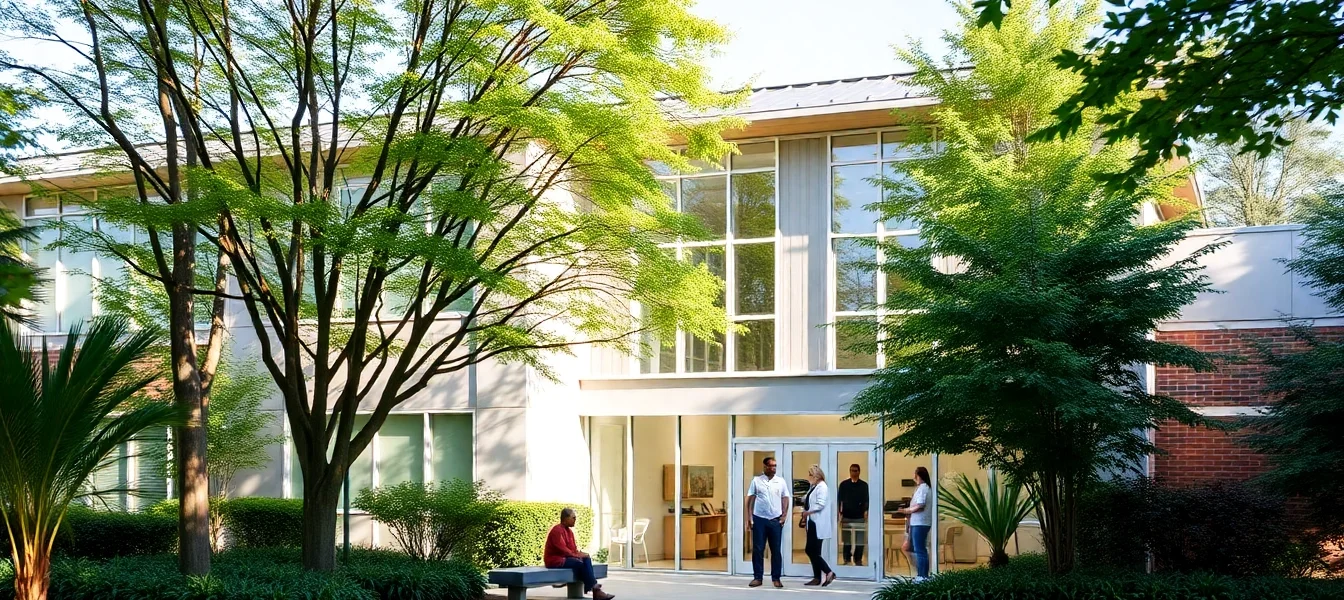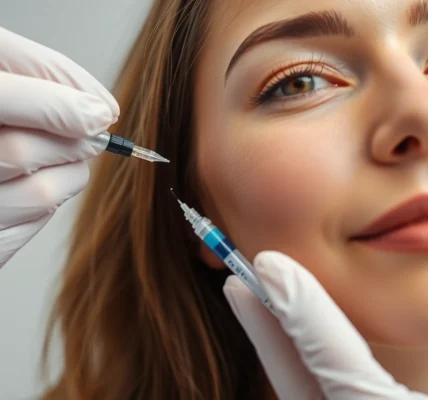How Kyiv’s Rehabilitation Center Leads Effective Dependence Treatment with Personalized Approaches
Understanding the Role of a Rehabilitation Center in Addiction Recovery
Rehabilitation centers serve as pivotal institutions in the journey towards overcoming addiction, providing structured, multidisciplinary approaches tailored to individual needs. These facilities are more than just treatment spaces; they are environments dedicated to healing physical, psychological, and social aspects affected by dependence on substances such as drugs and alcohol. An effective recovery process hinges on choosing a center that offers comprehensive care, specialized treatment protocols, and a supportive atmosphere. For those seeking a trusted rehabilitation center in Kyiv, understanding what makes such centers successful is essential for long-term sobriety.
Defining a rehabilitation center: Services and environment
A reputable rehabilitation center is a facility designed to facilitate recovery through various therapeutic modalities, including medical detoxification, psychological counseling, group therapy, and lifestyle modifications. The environment of a rehabilitation center—its physical settings, staff professionalism, and treatment philosophy—significantly influences outcomes. Centers like the Rehabilitation Center “Troidskiy” in Kyiv are characterized by their natural, serene surroundings that foster tranquility and reduce stress, inherently supporting emotional stability during treatment.
Services typically encompass medical detox, individualized therapy, family interventions, educational programs, and post-rehabilitation support. The ultimate goal is to restore health, rebuild social functioning, and empower individuals to sustain sobriety beyond the treatment period. Such comprehensive care models recognize addiction as a chronic disease requiring ongoing management rather than a short-term fix.
The importance of specialized care for addiction treatment
Dependence on substances manifests differently across individuals due to genetic, psychological, and environmental factors. Therefore, tailored strategies that address these unique profiles are vital. Specialized care involves employing evidence-based practices like the Minnesota 12-step program, cognitive-behavioral therapy, medical interventions, and nutritional support. It also encompasses cultural competence, gender-sensitive approaches, and age-specific programs to ensure relevance and effectiveness.
Implementing such personalized care reduces relapse rates, enhances patient engagement, and fosters sustainable recovery. Centers like «Troitskiy» in Kyiv exemplify this approach by integrating multidisciplinary teams—including psychologists, narcologists, and social workers—to craft individualized treatment plans aimed at comprehensive healing.
Why choosing the right rehab center impacts recovery success
The choice of a rehabilitation facility profoundly influences the likelihood of successful recovery. Factors such as accreditation, staff qualification, treatment methodologies, and environment quality should be meticulously evaluated. Centers that follow internationally recognized protocols, like the 12-step Minnesota program, and provide a supportive atmosphere with natural settings, tend to deliver superior outcomes.
Additionally, a center’s readiness for aftercare, including relapse prevention and social reintegration support, is crucial. An optimal center not only treats dependence but also equips patients with lifelong skills to manage future challenges, ensuring that initial sobriety transforms into lasting health and wellbeing.
Key Components of Effective Rehabilitation Programs
Individualized treatment plans tailored to each patient
Every person struggling with addiction presents a unique profile marked by distinct medical histories, psychological states, social circumstances, and personal goals. Personalized treatment plans are foundational to effective recovery, involving comprehensive assessments to determine the severity of dependence, co-occurring mental health issues, and social support networks.
For example, some patients may require intensive detoxification combined with psychiatric interventions, while others benefit more from outpatient counseling and community engagement. The success of centers like «Troitskiy» lies in their ability to customize interventions, continuously monitor progress, and adjust therapies as needed.
Holistic approaches: Therapy, lifestyle, and support systems
Rehabilitation transcends mere detoxification; it encompasses psychological, behavioral, and social healing. Holistic approaches integrate individual therapy (such as cognitive-behavioral therapy), group support, physical activities, nutritional counseling, and spiritual or relaxation techniques. Such multidimensional strategies address underlying issues, develop coping skills, and rebuild self-esteem.
Emphasizing lifestyle changes—such as regular exercise, healthy diet, and mindfulness—contributes to overall resilience. Support systems, including family therapy and peer groups, reinforce recovery efforts by creating a network of accountability and encouragement. Centers in Kyiv that promote these holistic paradigms, like «Troitskiy», demonstrate higher success rates due to their comprehensive methodology.
The role of detoxification and counseling in rehab
Detoxification is the initial phase where the body rids itself of harmful substances. Supervised medical detox ensures safety, mitigates withdrawal symptoms, and prepares patients for subsequent therapies. Counseling begins immediately after detox, focusing on understanding addiction triggers, developing relapse prevention strategies, and addressing emotional or psychological trauma.
Evidence suggests that combining detox with ongoing psychological support drastically improves long-term recovery. Facilities like «Troitskiy» adopt an integrated approach, providing medical detox followed by intensive counseling sessions, to ensure a seamless transition from physical dependence to emotional resilience.
Unique Advantages of Kyiv’s Rehabilitation Center
Comprehensive programs based on 12-step methodology
One of Kyiv’s key strengths is the adoption of the Minnesota 12-step program, a proven framework that emphasizes peer support, moral inventory, and spiritual growth. Centers such as «Troitskiy» utilize this methodology as a core component, complementing medical and psychological treatments.
This approach fosters community, accountability, and a sense of purpose, vital elements in maintaining long-term sobriety. Importantly, these programs are tailored to respect cultural nuances and individual beliefs, increasing acceptance and participation.
Comfortable, natural environment facilitating healing
North Kyiv’s greenery and tranquil landscapes are harnessed to enhance recovery. Natural settings have been shown to reduce stress, improve moods, and boost motivation. The «Troitskiy» center’s landscaped territory encourages outdoor activities, walks, and horticulture therapy, aligning with research that supports nature’s healing properties.
This environment minimizes the stress associated with institutional care, fostering a sense of peace that supports emotional stabilization and overall well-being.
Experienced multidisciplinary team committed to success
The backbone of any effective rehabilitation center is its team of experts. Kyiv’s clinics boast professionals with extensive backgrounds in addiction medicine, psychology, social work, and holistic therapies. This collective expertise ensures that each patient receives evidence-based, compassionate care.
Centers like «Troitskiy» prioritize ongoing training, latest treatment innovations, and a patient-centered approach, ensuring that care is both current and highly personalized.
Steps and Stages in the Road to Sobriety
Initial assessment and individualized planning
Successful recovery begins with a thorough evaluation: medical examinations, psychological assessments, and social histories. This data informs tailored treatment plans, set within a realistic timeframe and clear goals.
At centers like «Troitskiy», initial assessments are conducted by multidisciplinary teams who collaborate to develop a comprehensive roadmap that encompasses detox, therapy, and aftercare stages.
In-patient and outpatient treatment phases
The recovery journey is often staged through inpatient programs—residential stays offering intensive support—and outpatient services that facilitate gradual reintegration into daily life. Both phases are crucial; inpatient care provides a safe, controlled environment to stabilize health, while outpatient therapy supports autonomy and social reintegration.
Optimal programs incorporate flexible transitions based on individual progress, emphasizing continuity of care and relapse prevention strategies.
Post-rehabilitation support and relapse prevention
Sobriety is a lifelong commitment. After completing initial treatment, ongoing support in the form of counseling, peer groups, and life coaching is essential. Many centers in Kyiv maintain alumni networks, remote counseling options, and community programs to sustain motivation and skill retention.
Research indicates that continuous engagement reduces relapse by up to 50%. Centers like «Troitskiy» emphasize this phase, recognizing it as integral to durable recovery.
Choosing a Rehabilitation Center: What You Need to Know
Key factors: Accreditation, methods, environment
When selecting a rehabilitation facility, verify its accreditation status, the qualifications of the staff, and adherence to international standards of care. The treatment philosophy, particularly the inclusion of evidence-based practices like the 12-step program, is critical for efficacy.
Furthermore, environmental factors such as natural surroundings, comfort, and safety measures significantly influence patient engagement and outcomes. In Kyiv, centers like «Troitskiy» offer a balanced combination of expert care and serene environments, setting them apart from less equipped alternatives.
How to start the admission process and what to expect
Initial contact involves an assessment of the patient’s needs, medical history, and treatment preferences. The process includes collaboration with healthcare professionals to determine the most suitable care plan. Before admission, potential patients should prepare documentation, be ready to discuss their history, and understand the program schedule.
Most centers maintain transparent protocols, emphasizing confidentiality, comfort, and personalized care plans that align with patients’ goals and circumstances.
Success stories and ongoing support for lasting recovery
Many patients experience transformative outcomes through dedicated rehabilitation programs. Case studies from Kyiv reveal high rates of sustained sobriety, improved social functioning, and reclaimed personal well-being. Continuous engagement post-treatment is vital; ongoing therapy, community involvement, and relapse prevention education support long-term success.
The commitment of centers like «Troitskiy» to holistic and personalized care ensures that each success story is built on a foundation of comprehensive, compassionate support tailored to individual recovery trajectories.




